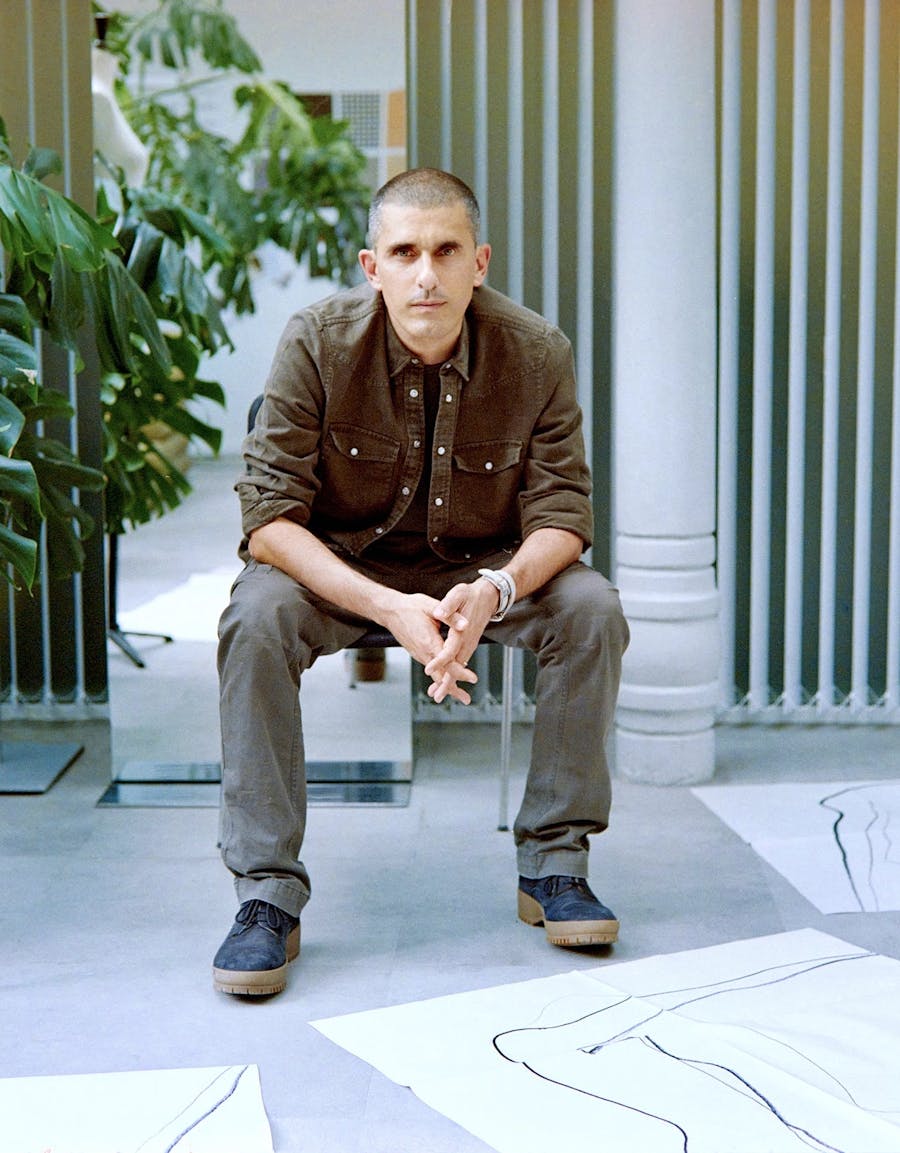You’re a little kid, too young for midnight — unless you’re sick, or can’t sleep, both of which will piss off your parents. They don’t tell you how they feel about your being awake, but you know. As you grow a little taller midnight becomes a window you imagine, one that leads to the freedom older kids and adults have. You think about midnight, because it wreaks of sex and stimulation. But so far you’re not sure what the sex is or stimulants are. You’ve seen all kinds of sex on your friend’s smartphone and your older brother’s computer, and are waiting for the day to get your own so you can study it more closely. Maybe you’re really precocious and have read all the sex parts in John Updike novels, already dog-eared by your parents. Or maybe the only sexual experience you had was playing doctor with a friend who dragged you into a discovery session. So, whether you’re a boy or a girl, you know something about sex and which parts of the body are used, but you haven’t done it, and might not for a while. And midnight seems like just the right time for it.
Now that you’re yet taller there are evenings when you’ve sipped beer and wine, and stuck your nose in an after-dinner whisky when the parents, watching some game, jumped up after an amazing goal. You snuck a puff of your mother’s cigarette when she wasn’t looking and managed not to cough or feel stupid. A couple of your friends got hold of cigarettes, which you all tried to everyone’s satisfaction, and a kind of test was passed. You’re scared of drugs, but that’s because you’re a kid and your older siblings don’t do them, or at least not yet. You’re not sure. You just want to get beyond the stage of being young but aware of experiences that occur around midnight or after.
Thelonius Monk wrote a moody jazz piece called “Round Midnight,” using a dissonant melodic minor scale. J.J. Cale, originally of the Velvet Underground, wrote a rather stupid rock song called “After Midnight,” which Eric Clapton covered, making each the kind of money that allows rock musicians to turn night into day. Clapton changed the last word of the opening line from “out” to “down” — “After midnight, we’re gonna let it all hang down.” Why Clapton changed a word that meant both letting go and exposing oneself to one that meant to sag or droop seems almost adult-like, as if he was censuring a livelier experience for a sadder effect. By then Clapton was rich to the point where midnight slid into the wee hours of the day-night schism. To cohorts like Keith Richards, and to many of my own musician, writer, and party animal friends, the day-night midpoint was more like six in the morning, the hour they finally got to bed. A kid’s parents dictate night in terms of day, so midnight is a dream away and six is when you get up for school. Kids can’t yet see how six a.m. can be the hour when day becomes night, a time for sleeping.
Like many things, midnight is a myth that only exists in human imagination, a false cognate about an exact moment between sunset and sunrise, which is a constantly shifting “middle” of night. It survives as a meme without even the remotest reality beyond the human metaphysics of time, space, and number. Yet a middle was established, based on a time system of two 12 hour segments, with switching points at midday and midnight. The 24-hour clock fit a convenient pattern — we fit everything to patterns. It’s how we make sense of the world.
Priests — once the only educated class — stared endlessly at the night sky to figure out the patterns of stars in order to calculate time. Days, of course, have different durations between summer and winter time had different durations of light. And as priests tend to be maniacs about order and control, complicated systems were created.
The Egyptians used a duodecimal (12) system based on the lunar cycle’s seemingly miraculous connection to the twelve knuckles on four fingers. Fingers were the basis of counting. Four fingers with three knuckles and a thumb that has two produced a quantity of 14. All the knuckles on two hands equaled 28, which is the number of days of February, the last month in the pre-Christian 12-month year. (Think about it: September means seven; October means eight, November means nine; and December means ten; so January is 11 and February is the twelfth and shortest month.). Sundials were also first used in Egypt, again based on 12 units, leaving five days left of the 365-and-a-quarter days per year, which is why February has an extra day every four years. Everything had to be figured out. Life would have been so much more perfect had there been 360 days made up of 12 30-day months, which is what early sundials used.
Babylonians came up with the base-60 counting system, again using the 12 knuckles on four fingers and the five fingers of the hand. The right hand was used to count up to 12, while the left hand represented quantities of 12. All five fingers added up to 60. From this system we got the 60-minute hour of 60 second minutes, as well as the 360 degrees of a circle and longitude around the planet. All that came from the Babylonian base-60 counting system.
In the middle ages people didn’t know the time or how old they were. Church rituals, planting and harvest, and numerous religious holidays were their only means of knowing the day or time of year. They slept when the sun went down, and might get up to eat and talk by candle light. Midnight had no meaning other than the middle of night’s passage to day.
Monks’ hours of prayer set in place the proper hours of devotion and the invention of clocks. But it wasn’t until English began to rule the seven seas, and needed better control over shipping and commerce, that Greenwich, England, became Time’s ground control, the place where time would be established as a center point, and establish the time zones we use. (There are parts of the world, such as in China, that ignore them. Imagine living in a time zone where midnight was still in daylight.) As the Industrial Revolution overwhelmed the Agricultural Revolution, clocks created the life-work schedules we live by — for which alcohol, drugs, sports, and entertainment were needed to salve the stress of having to invent an identity and live according to the rules of work versus play. Now we’re obsessed with time, and our most repeated number is our date of birth, so we’re obsessed with ourselves too.
Time did not create us, we created time to schematize life and death, neither of which we can completely control. Life is about sex and procreative continuity. There are some who don’t have sex at all and seem perfectly happy, though most of us prefer sex to procreation, and leave child-raising for a time when we can afford it, if then. Life requires death for its continuity, but no one wants to die, or at the very least wants some choice in the matter.
One might wonder if our hunter-gatherer ancestors were freer and happier in life. They did what they had to to survival. Everyone, young and old, looked for food, shelter, and fuel, and each learned from the other. Sharing knowledge equally made lives more balanced than ours. For small tribes, sex was more like a family affair, as everyone knew everybody (long before Sigmund Freud turned sex and the family into a psychological quagmire). Once hunter-gatherers started staying put the Agricultural Revolution took off, with people growing crops, forcing horses to carry and convey, castrating bulls (called oxen) so they’d be more calm to till the soil, turning dogs into guardians and house pets, and pigs, chicken, sheep, and cattle into food groups. Living in one place required organization and will power in order to make sure things function according to design. Crops had to grow, the weather had to be good, rain was needed here and not just anywhere. Crops were divided, jobs were created. Sometimes the ground was too hard, and oxen had to clear more land to grow enough food for everyone. Social hierarchies were created. Rules were devised. Some worked more than others. The pushier demanded control. Superstition and paranoia led to fabricated rituals designed, like gambling, to enhance continuity. Priests and controllers made sure things went on schedule. Hope and experience led to religion and profit — the rules we now complain about.
The birth of the universe created time and matter about which it knows nothing. Its destiny is to implode into a black hole, and maybe create a transition from compacted darkness to new light. Knowing about midnight starts when we’re children, waiting for the tomorrows of Christmas, a birthday, or a holiday, or being read the story of anxious Cinderella having to hurry home in time to be safe from her nasty, horrible stepsisters. Calculating time in numbers created new varieties of confusion and anxiety. These are the numbers we live by.
Of course there’s something erotic about midnight, whose dark side is the deep gloom called a midnight mood. The erotic part grows into us when we’re young and remains so until we’re too tired to stay up through the wee hours from midnight to dawn, which anyone young, healthy, or pleasantly drugged might claim the middle point for the evening to come.



